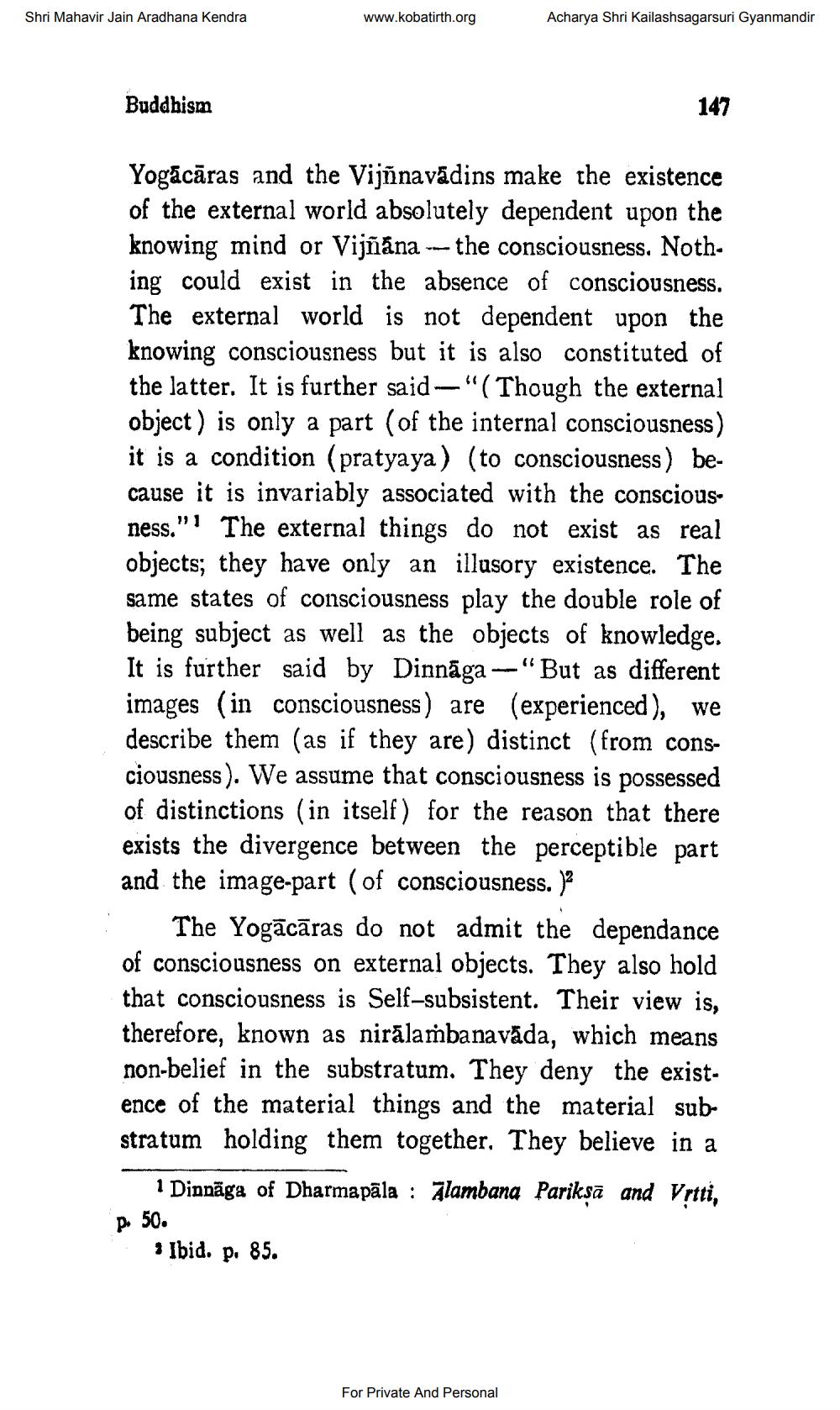________________
Shri Mahavir Jain Aradhana Kendra
www.kobatirth.org
Acharya Shri Kailashsagarsuri Gyanmandir
Buddhism
147
Yogācāras and the Vijñnavadins make the existence of the external world absolutely dependent upon the knowing mind or Vijñana -- the consciousness. Noth. ing could exist in the absence of consciousness. The external world is not dependent upon the knowing consciousness but it is also constituted of the latter. It is further said —"(Though the external object) is only a part (of the internal consciousness) it is a condition (pratyaya) (to consciousness) because it is invariably associated with the consciousness."! The external things do not exist as real objects; they have only an illusory existence. The same states of consciousness play the double role of being subject as well as the objects of knowledge. It is further said by Dinnāga --"But as different images (in consciousness) are (experienced), we describe them (as if they are) distinct (from consciousness). We assume that consciousness is possessed of distinctions (in itself) for the reason that there exists the divergence between the perceptible part and the image-part (of consciousness. )? : The Yogācāras do not admit the dependance
of consciousness on external objects. They also hold that consciousness is Self-subsistent. Their view is, therefore, known as nirālambanavāda, which means non-belief in the substratum. They deny the existence of the material things and the material substratum holding them together. They believe in a
1 Dinnäga of Dharmapāla : Alambana Pariksā and Vrtti, p. 50.
; Ibid. p. 85.
For Private And Personal




